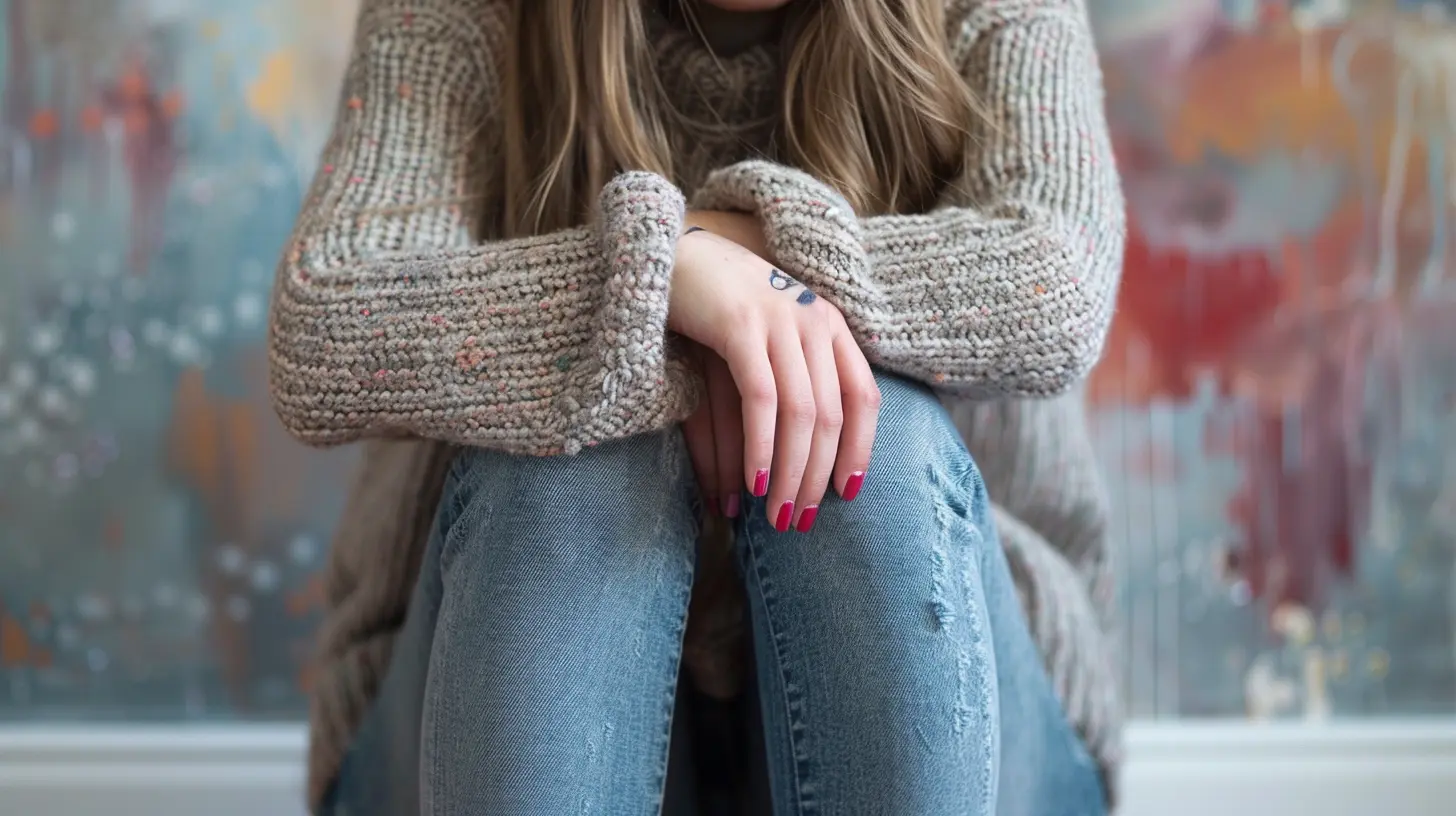The Importance of Vulnerability in Mental Wellness
13 August 2025
Ever felt like you're wearing a mask, hiding your true emotions, and pretending everything is okay when it's really not? Yeah, we've all been there. Society often tells us to "stay strong" and "keep it together," but what if I told you that real strength comes from vulnerability?
Yep, you heard that right. Being vulnerable is not a sign of weakness—it's actually one of the most powerful things you can do for your mental wellness. So let’s break down why embracing vulnerability can make a world of difference in your life.

What Is Vulnerability, Exactly?
In simple terms, vulnerability is the courage to be your authentic self, even when there's a risk of being judged, hurt, or misunderstood. It's opening up about your struggles, expressing your emotions, and allowing yourself to be seen—flaws and all.Think of it like taking off a heavy backpack after a long hike. Sure, it feels weird at first, but the relief is undeniable. Vulnerability lets you drop the weight of emotional baggage you've been carrying around, making room for healing and connection.

Why Do We Fear Vulnerability?
Let's be real—being vulnerable can feel terrifying. It’s like stepping on stage without a script, hoping the audience won’t boo you off. But why are we so scared of it?1. Fear of judgment – We worry that people will think we're weak, broken, or "too much."
2. Rejection anxiety – No one likes the idea of opening up only to be dismissed or ignored.
3. Loss of control – Vulnerability means letting go of the polished version of ourselves we present to the world.
4. Past experiences – Maybe you’ve been burned before, and now your brain is in full-on self-protection mode.
But here’s the thing—avoiding vulnerability only traps us in isolation. And isolation? That’s a one-way ticket to stress, anxiety, and emotional exhaustion.

The Mental Health Benefits of Being Vulnerable
So what happens when we stop bottling up our feelings and start embracing vulnerability? Magic. Well… not actual magic, but some seriously good things for your mental wellness.1. Stronger Emotional Resilience
When you allow yourself to be vulnerable, you build emotional resilience. Instead of avoiding uncomfortable emotions, you learn how to sit with them, process them, and grow from them. You start realizing that your feelings aren't your enemies—they're just messengers trying to tell you something.2. Deeper Connections with Others
Ever noticed how the strongest friendships or relationships happen when you’re willing to be real? Vulnerability is the secret sauce to meaningful connections. When you open up about your struggles, you give others permission to do the same. That’s how trust and intimacy are built.3. Reduced Stress and Anxiety
Suppressing emotions is like shaking a soda bottle—eventually, it's going to explode. But when you express yourself honestly, you let that pressure out little by little instead of letting it build up into an emotional crisis.4. Greater Self-Acceptance
Being vulnerable forces you to face yourself—your fears, flaws, and insecurities. And guess what? That’s how self-love begins. When you stop hiding parts of yourself, you start realizing that those “flaws” aren’t flaws at all. They're just part of being human.
How to Cultivate Vulnerability (Without Freaking Out)
Okay, so vulnerability is important. But how do you actually start embracing it when the idea makes you cringe? Baby steps, my friend.1. Start Small
You don’t need to spill your deepest fears on social media or tell your life story to a stranger. Start by sharing a little more with someone you trust—a friend, a partner, a therapist.2. Lean into Discomfort
Vulnerability will feel uncomfortable at first. That’s normal. When you catch yourself wanting to shut down emotionally, pause. Ask yourself: "What am I afraid of? What's the worst that could happen?" More often than not, the worst-case scenario isn’t as bad as our brains make it out to be.3. Reframe Vulnerability as Strength
Change your mindset. Instead of seeing vulnerability as a weakness, recognize it as an act of bravery. Think about the people you admire—chances are, they’re the ones who are open, honest, and real.4. Practice Self-Compassion
Being vulnerable means accepting that sometimes, you’ll get hurt. Not everyone will respond the way you hope, and that's okay. Remind yourself that you're doing something incredibly courageous, and give yourself grace in the process.5. Write It Out
If face-to-face conversations feel too daunting, try journaling your feelings first. Writing can help you process emotions and understand yourself better before you share with others.Vulnerability in Everyday Life
Still not sure where to start? Here are some small, everyday ways to practice vulnerability:- Admit when you don’t have all the answers.
- Apologize when you’re wrong (without making excuses).
- Express your feelings honestly instead of brushing them off.
- Ask for help when you need it.
- Say “I love you,” even if it scares you.
Each time you let yourself be vulnerable, you make it easier for the next time. It’s a muscle—exercise it enough, and it gets stronger.
The Takeaway
Vulnerability isn’t about broadcasting your struggles to the whole world—it’s about having the courage to be authentic, even when it feels risky. And when you do, you’ll discover something pretty amazing: people are drawn to honesty, not perfection.So take a deep breath. Let your guard down, even just a little. Because on the other side of vulnerability? That’s where true mental wellness begins.
all images in this post were generated using AI tools
Category:
Mental WellnessAuthor:

Sophia Wyatt
Discussion
rate this article
1 comments
Valerie Lawrence
Embracing vulnerability fosters authentic connections, essential for healing and nurturing mental wellness in ourselves.
August 22, 2025 at 3:24 PM

Sophia Wyatt
Thank you for highlighting that! Embracing vulnerability indeed plays a crucial role in building authentic connections and enhancing our mental wellness.


